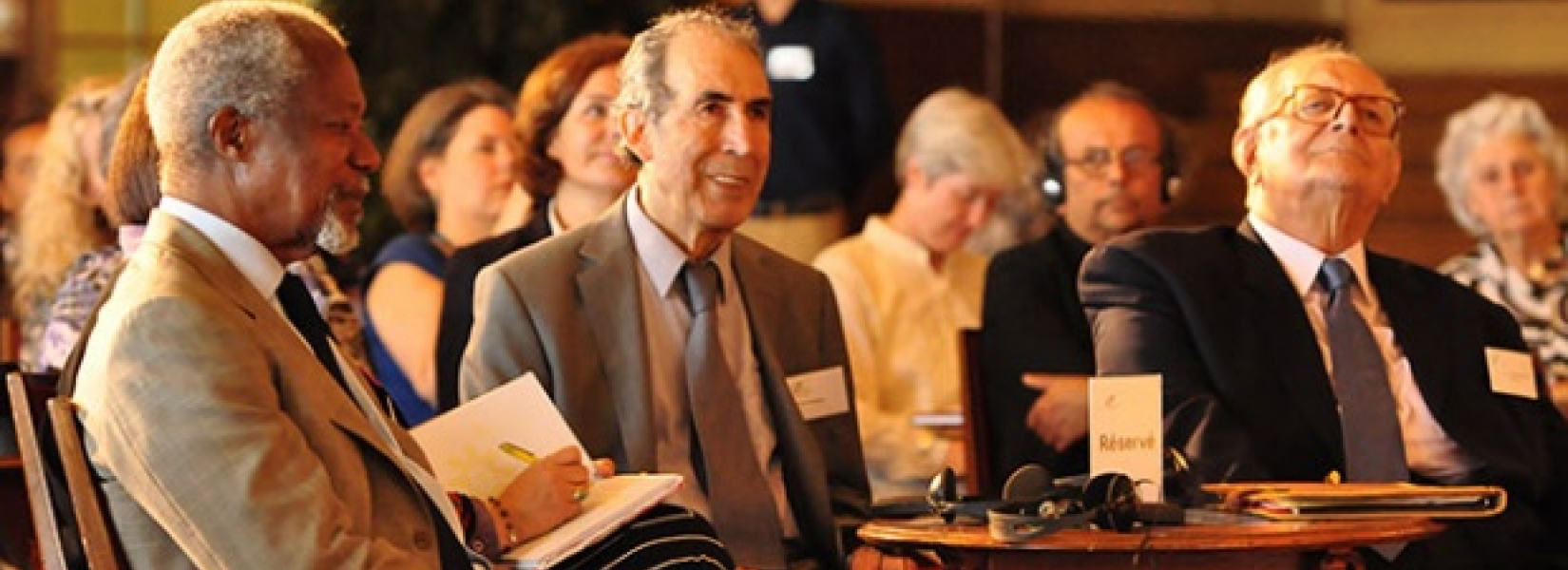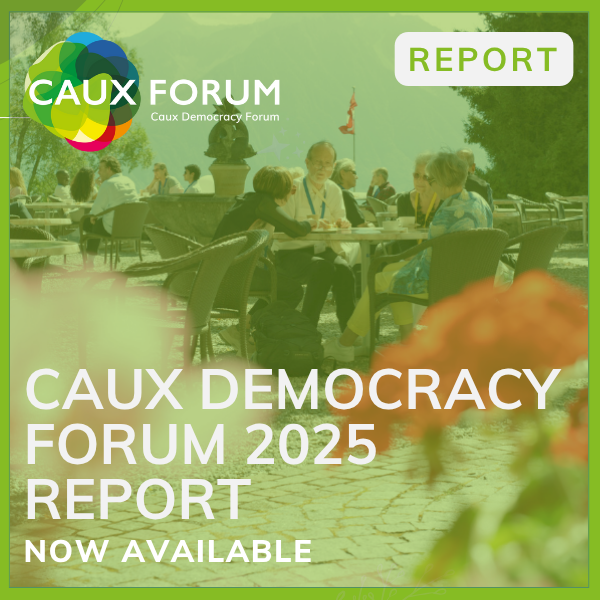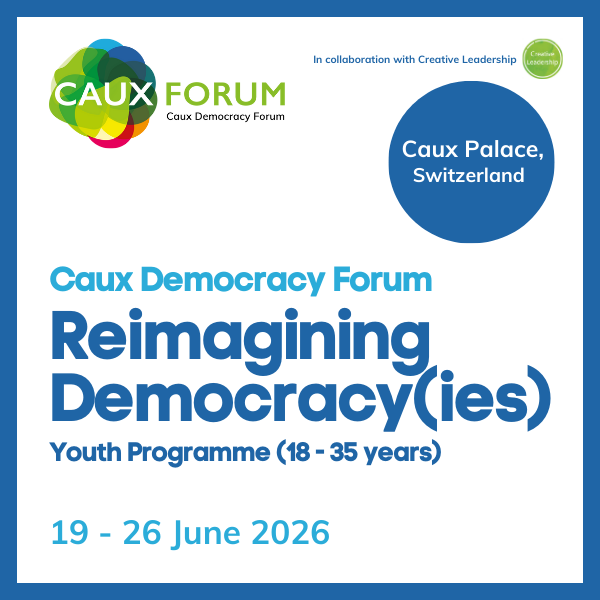Saying Goodbye to Mohamed Sahnoun
By Rainer Gude and John Bond
25/09/2018
In a time when the world is agonizingly looking for leaders of dignity and wisdom, it comes with great sadness that shortly after losing Kofi Annan, we have now also lost his close friend and mentor Mohamed Sahnoun. World-renowned diplomat, former President of IofC International and founder of the Caux Forum for Human Security, Ambassador Sahnoun embodied the saying "Be the change you want to see in the world."
Ambassador Mohamed Sahnoun, or simply Mohamed, as he was known to his colleagues, came across as a soft-spoken, kind and humble man. One would not at first assume that this was a world-renowned diplomat and international personality. However, whenever we had the pleasure of sharing a word with him or of accompanying him to the UN (which he continued to do as long as his health permitted) you caught glimpses of life lived to the fullest in service of humanity. Not only because of the admiration and respect that others gave him when they recognized him, but also because of his many anecdotes from almost every corner in the world and related to many of the important diplomatic and historic events of the last 40 years. He had a background story to almost every major global event … and yet when he talked you never felt it was about him, but about the people he worked with and whom he was trying to serve.
His career postings and titles would be enough to fill multiple lives. He has served as Deputy Secretary-General of the Organization of African Unity and the League of Arab States and as Algeria’s Ambassador to the United States, France, Germany and Morocco. He was a Special Advisor to the Secretary-General of the United Nations, Kofi Annan, and has represented the UN in various capacities since 1992. Among his assignments was Special Representative of the Secretary-General in Somalia and in the Great Lakes. He served on the International Council of the Earth Charter Initiative and on the World Commission on Environment and Development (the Bruntland Commission) and remained a strong advocate of sustainable development. He contributed to the development of « The Responsibility to Protect » as a concept in international relations. He was a member of the boards of the University for Peace, the International Crisis Group and Interpeace and was co-chair of the Global Center for the Responsibility to Protect.
Though he always remained dedicated and gave his time to many causes, we at Initiatives of Change were honoured to have him succeed his friend Cornelio Sommaruga, former President of the International Committee of the Red Cross, as the President of Initiatives of Change International in 2006. In 2008 he launched, together with Cornelio Sommaruga, the Caux Forum for Human Security which he then chaired for 5 years bringing a whole new network of dedicated practitioners to Caux around this emerging concept.
As he said in an interview with the Huffington Post, ‘The idea came from my sense of the deep insecurity in today’s world. Insecurity is born of fear. We must look to the root causes of that fear, and address it with far more energy and cohesion.’
He chose Caux as the venue because ‘it is a place where interreligious dialogue is deeply established. (...) Caux was a safe place where people could build trust in one another.’
In Mohamed’s view, achieving human security depended on progress in five areas, which he defined as just governance, inclusive economics, intercultural dialogue, environmental sustainability and healing historical wounds. ‘So often the understanding of security has focused purely on physical security,’ he said. ‘But human security is about the very fundamentals of our existence. I place special emphasis on healing wounded memories. In Algeria, Northern Ireland, the Balkans and other places of long pain and violence, the feelings run so deep that a special effort is called for.’
To advance this programme Sahnoun called for a ‘coalition of conscience’ bringing together people of integrity and compassion to overcome the corrupting impact of greed and the struggle for power. ‘We strengthen good governance at the top by sustaining it all the way down to its roots in the family, in parenting skills, in local communities,’ he said. ‘We can challenge our governments to adopt sustainable policies if we first take a hard look at our own lifestyles.’
He was profoundly convinced that change starts with the individual, starts with me and he was a wonderful embodiment of that message.
In Caux, Mohamed was « at home » able to interact and pass on his tremendous wisdom and experience to people from around the world of all ages. But even with all his achievements and insight, it was his humility and warmth that touched people most. How someone so « important » and so « capable » could remain so simple and kind, was an often-repeated comment for the youth who got to know him.
In his last years with us in Geneva, it was his tenacity, determination, and yet optimism that continued to touch us. No matter how slow he began to walk, or what other physical ailment he had, nothing would stop him from following the news and going to every meeting at the UN that he could follow. No amount of bad news, either global or personal, seemed to take away his simple yet resolute smile. Though his eyes had seen a great many troubles, they never seemed to lose that flicker of hope for which we will always fondly remember him by.
We are immensely grateful for all Mohamed gave to Initiatives of Change and to the world, and will endeavour to pass on what he shared and stay true to his message.
- Watch Mohamed Sahnoun's opening speech of the 3rd Caux Forum for Human Security in 2010 and an interview with him in 2011.
- Read Mohamed's Sahnoun's Book "Mémoire Bléssée" (only in French) published in 2007 by Presses de la Renaissance.































